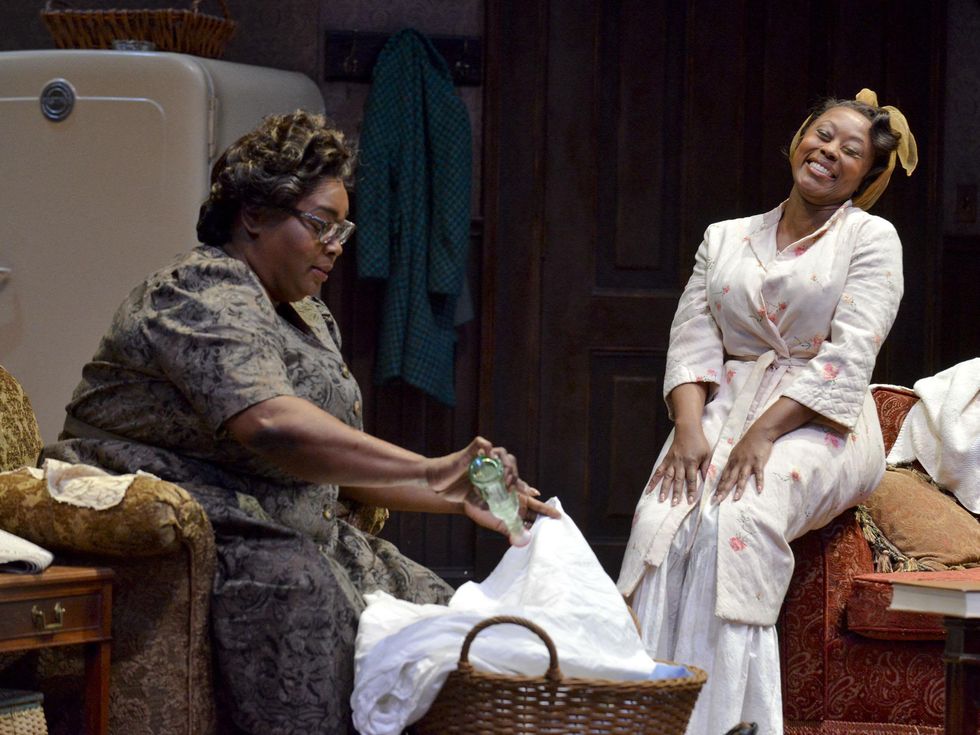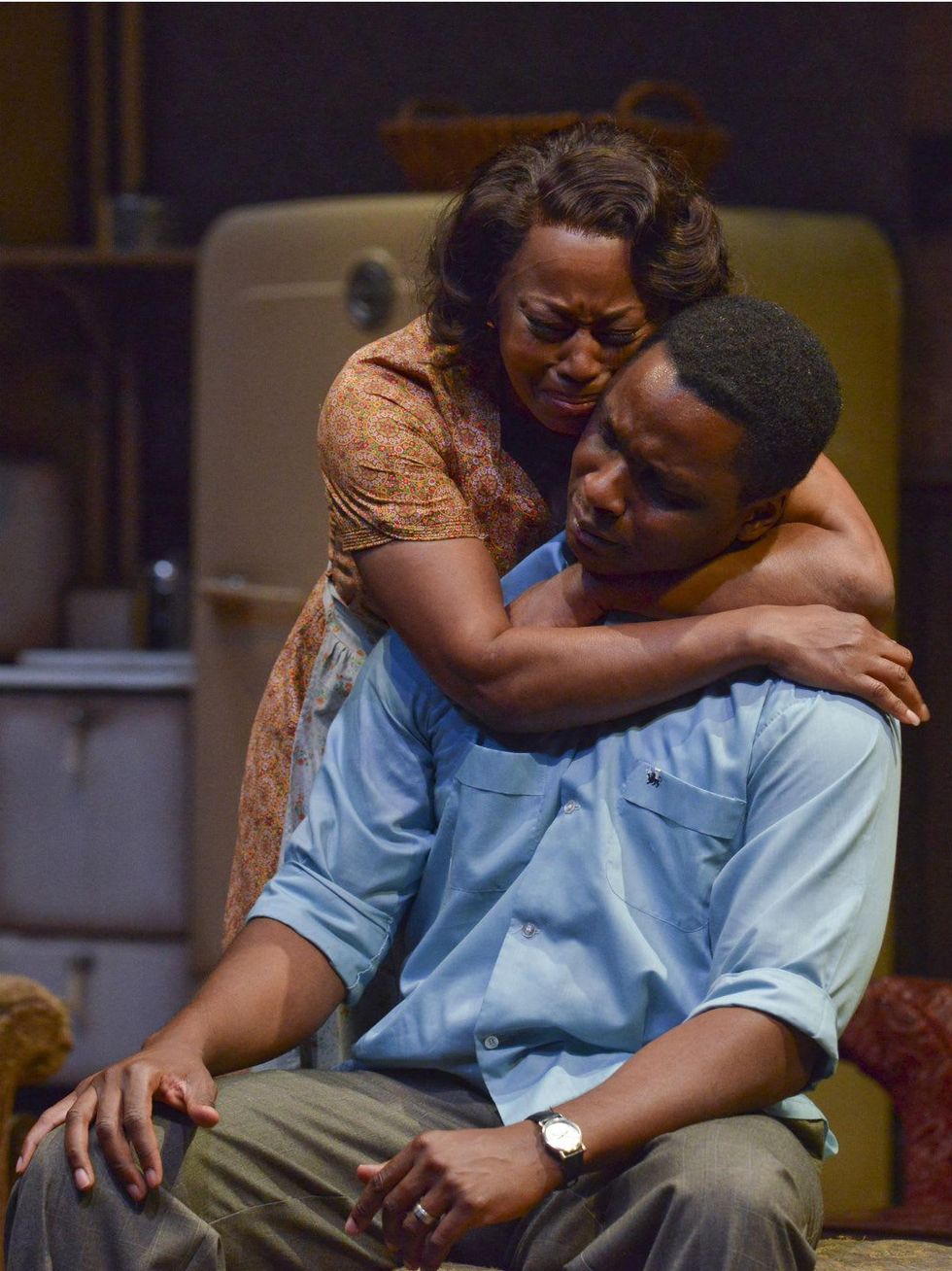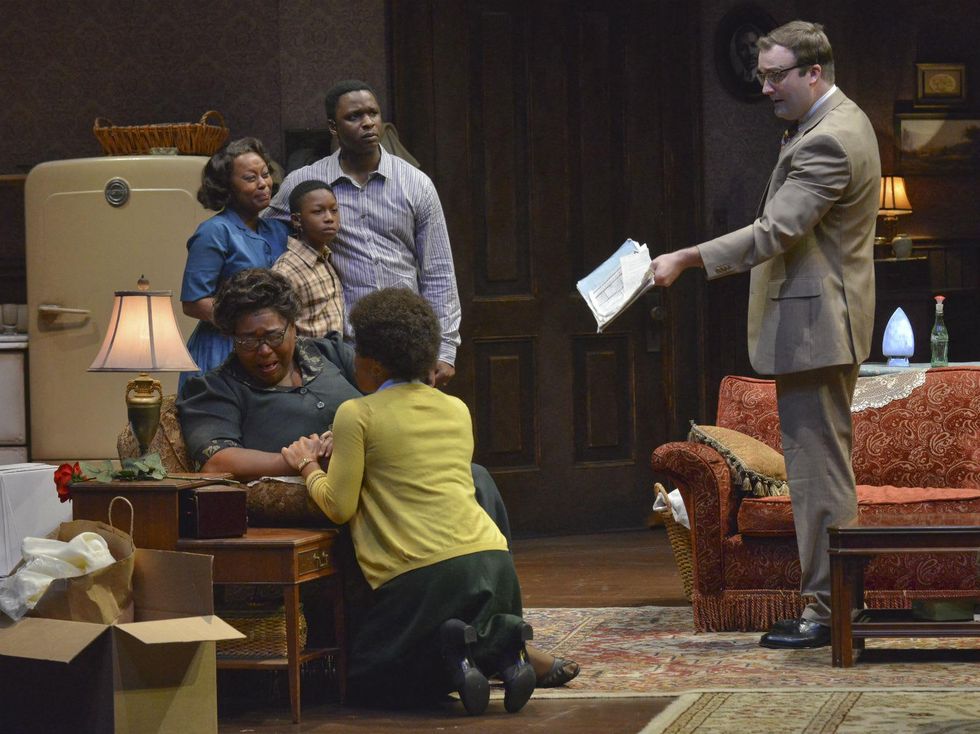An Actors Showcase
Dallas Theater Center's A Raisin in the Sun proves classics never go out of style
Greed. Obligation. Loyalty. Racial tension. Hatred. Love. All of these and more are on display in the classic play A Raisin in the Sun, which kicks off Dallas Theater Center’s 2013-2014 season (now playing at Wyly Theatre through October 27).
Above all else, though, is family — in this case the Younger family, five people crammed into a three-room apartment in Chicago in the 1950s. Lena, or Mama (Liz Mikel), is the matriarch, laying down the law with a soft but firm touch to her son Walter Lee (Bowman Wright), daughter Beneatha (Tiffany Hobbs), daughter-in-law Ruth (Ptosha Storey) and grandson Travis (Christopher Adkins).
The anger, joy, sadness and humor of every character shine all the brighter when much of the audience is within a few feet of the actors.
The family patriarch has recently died, and all five remaining family members are anticipating a soon-to-arrive life insurance payment for differing reasons. Mama hopes to buy a house in a better part of town. Walter Lee wants to use some of the money for a possible business venture.
Beneatha’s goal is to become a doctor, and some of the money is slated toward paying for her medical school. And Ruth just hopes the money will bring a better life for all of them.
Mama and Walter Lee drive most of the action, although I use “action” in the loosest sense, because literally every scene takes place in the Youngers’ apartment. Walter Lee and Beneatha are grown, but because they still live in Mama’s house, she maintains a certain hold on them.
It’s plain to see that Walter Lee, who has a tendency to drink too much, has ambitions that are bigger than the family’s means, even with the incoming money. But his desire to get what he wants threatens to derail everything else the family has going for them.
Perhaps the biggest reason the play remains a cultural touchstone is its commentary on race and race relations. It features a wealth of viewpoints on how African-Americans are perceived, especially within their own race. The crescendo of the play deals with whether of not the family will decide to move to a predominantly white neighborhood, but everything that comes before, especially in Beneatha’s storyline, reveals that racial divides don’t always cross color lines.
DTC’s production, directed by Tre Garrett, almost literally puts the audience in the middle of the play. Employing an extended stage that contains most of the apartment’s seating area, the theater is turned into a semi stage in the round, with rows of seats on both sides of the stage as well as the front.
The result is a heightened intimacy, especially helpful in a play like this where relating to the family is essential to its success. The anger, joy, sadness and humor of every character shine all the brighter when much of the audience is within a few feet of the actors.
And this is an actors showcase if ever there was one. Mikel’s physical presence is enough to make her a perfect fit for Mama, but when you add in her pitch-perfect delivery on every single one of her lines, it’s an award-worthy performance.
Wright is a fiery counterpoint, but his character is far from one-note. Walter Lee has angry, drunken outbursts to be sure, but they’re fueled by desperation and, ultimately, love for his family, and Wright wears each of these emotions well.
Both of the younger women do fine work as well. Beneatha and Ruth each go through arcs that have them questioning who they are and what they believe. It’s a testament to the strength of Hobbs and Storey that their characters’ stories feel as authentic and moving as they do.
The story, naturally, feels a bit dated, but the feelings it engenders are as relevant today as they were 50 years ago. One can scarcely imagine what the reaction would have been to a production of this play in Texas at that time. The reaction it got from a modern-day audience, at least on this night, seemed at times to be compensating for a history many only know from their schoolbooks.
Regardless of the reason, though, DTC’s production of the play and the actors deserved all the rapturous applause they received. A Raisin in the Sun is another winner for a theater company with plenty on its ledger. Now we wait with bated breath to see how they handle its companion piece, Clybourne Park.



